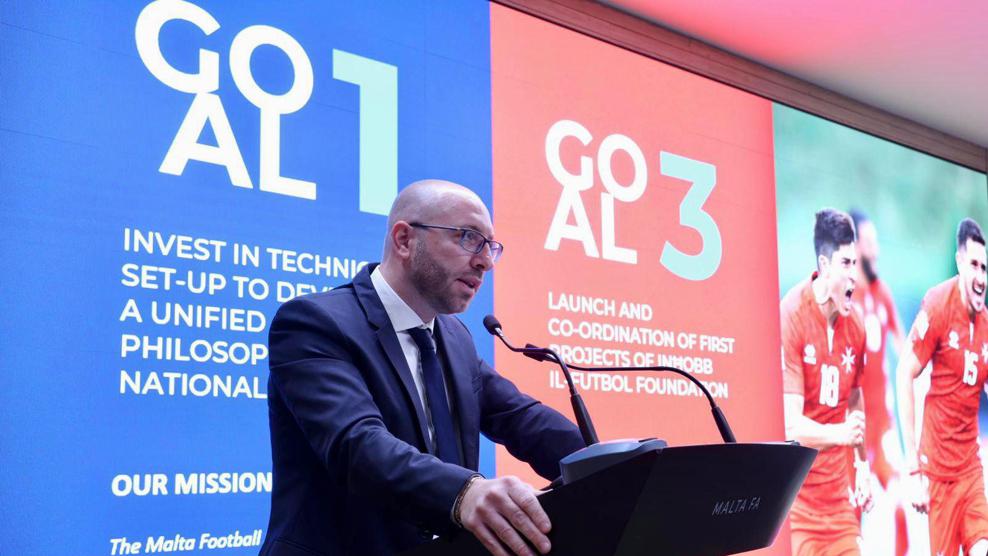Grassroots and technical projects on track in Malta
Thursday, January 26, 2023
Article summary
The Malta FA general assembly cast light on the progress of the various technical projects undertaken by the association as part of its four-year strategy (2020–24).
Article top media content

Article body
The strategy prioritises the development of football from grassroots to elite level, with the projects aimed at further promoting football in schools and among young girls, talent development and the national teams.
Addressing the assembly, the Malta FA president, Bjorn Vassallo, provided an analytical insight into the progress achieved by the men’s and women’s senior national teams based on results and statistics.
“As Malta FA president, I am satisfied that, at the top of the local football pyramid, we have experienced positive situations that show we are moving in the right direction,” Vassallo said.
Steadfast commitment
“It has been anything but plain sailing, especially when considering the incredible difficulties encountered globally over the past three years, but the association was steadfast in its commitment to implement the projects across the entire spectrum of Maltese football.”
Administrators from the Malta FA technical centre and the Inħobb il-Futbol Foundation (IFF) gave an overview of the ongoing projects, including the elite player performance project, the Enter the Next Level youth programme and plans to further strengthen player development within the technical sector.
In the coach education sector, the number of candidates taking part in coaching courses almost doubled from 155 in 2020/21 to 285 the following season.
Fun Fit Football programme
Another active sector within the technical centre is grassroots development, which has overseen the implementation of the Fun Fit Football programme in all primary schools across Malta and Gozo. It has also overseen the successful introduction of regional football hubs, while the UEFA Disney Playmakers programme, intended for girls aged five to eight, has also proved immensely popular.
Women’s football also ranks high on the association’s agenda as one of the main strategic goals is to achieve a 15% increase in the number of girls playing football. This is supported by a number of ongoing projects.
New strategies for women’s football and beach soccer are also in the pipeline, while futsal is on the rise, especially at youth level, thanks to projects to develop the futsal academy and futsal in schools.
This article appeared originally in UEFA Direct 200
